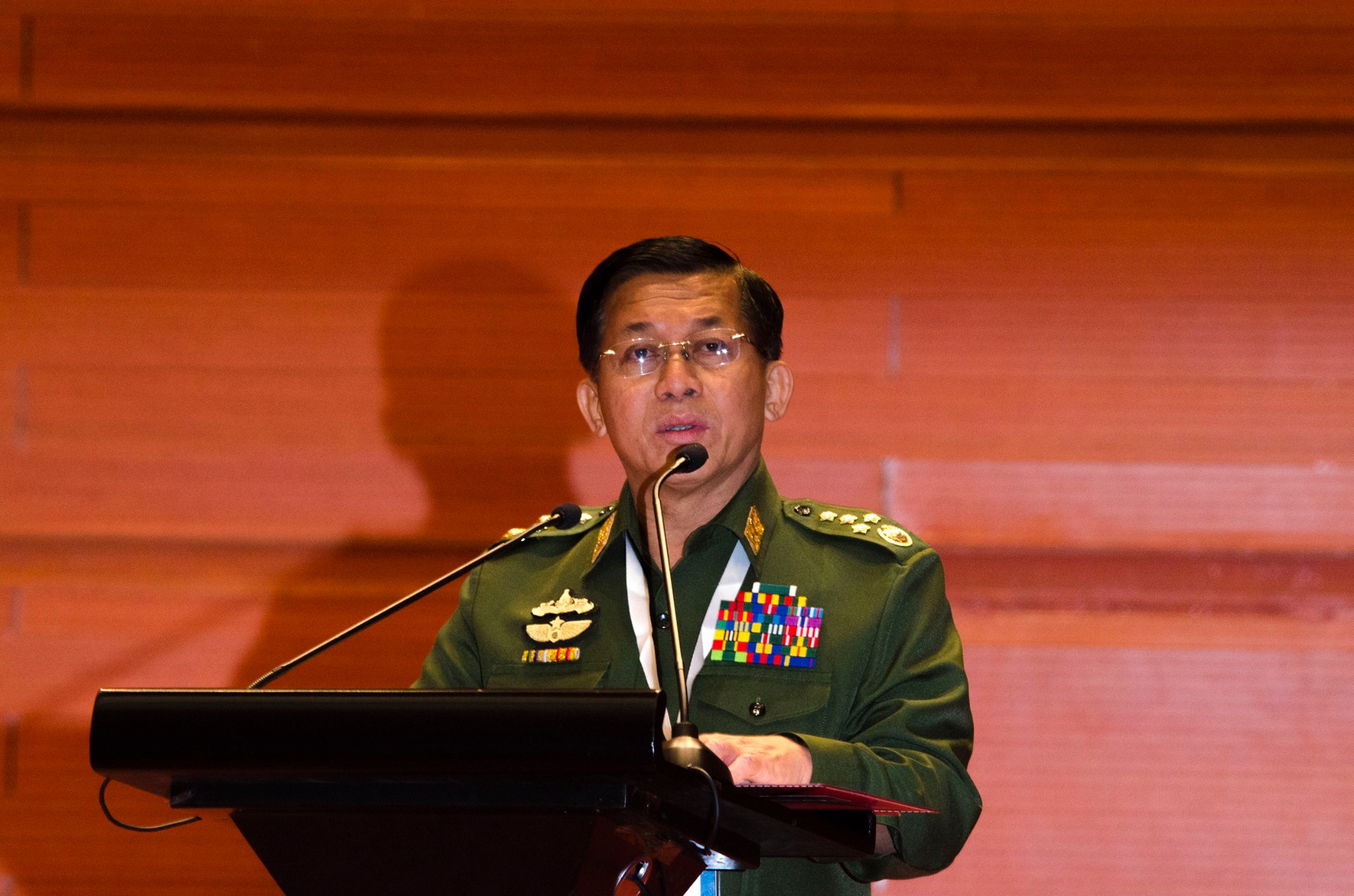The commander-in-chief of Burma’s armed forces has invited the country’s ethnic rebel fighters to join his ranks.
Speaking to 700 delegates representing the country’s military, political parties and ethnic armed organisations at the Union Peace Conference on Tuesday, Min Aung Hlaing said that all those who want to defend Burma are welcome to do so under Naypyidaw’s single banner.
“In different countries in the world, it is seen that each country has one army for the defence of their country,” the senior-general said from the dais.
“We are also practicing that policy and building the Myanmar Army to be one standard army. I would like to say that I want to invite ethnic soliders who want to perform defence duties to join the Tatmadaw.”
Min Aung Hlaing added that the political dialogue, mandated by the signing of a Nationwide Ceasefire Agreement [NCA] by seven ethnic armies in October and begun today, was the only option for achieving peace and a “Union based on democracy and federalism.” The defence chief said the door was still open to rebel armies that boycotted both the signing of the ceasefire and this week’s peace summit after complaining that the process was exclusionary.
The offer for rebels to join the Burmese army, or Tatmadaw, is in line with the institution’s own stated and constitutionally-protected right to exist as Burma’s “sole patriotic defence force.” Min Aung Hlaing’s now-willingness to see ethnic rebels join his ranks comes as the opening salvo in what analysts believe to be the trickiest topic up for discussion throughout the five day Union Peace Conference, security sector reform.
[related]
Security sector reform is treated by Naypyidaw as the process of the disarmament, demobilisation and reintegration of ethnic armies. Those ethnic armies see the process as the creation of a federal or union army, in which control would be shared.
The former junta’s preferred method of bringing armies together was to remould them as free-wielding ‘Border Guard Forces’. In eastern Burma in particular, these government-allied ethnic militias have shouldered much of the burden in the fighting between Naypyidaw and its former enemies.
Discussion will be hampered by the knowledge that a rebel cohort including at least two of Burma’s largest rebel armies has refused to sign October’s NCA or participate in the current political dialogue. Those forces include the Kachin Independence Army and the Shan State Army-North, which have both fought fierce battles against Naypyidaw’s troops since the ceasefire document was signed.
Also speaking on Tuesday, National League for Democracy leader Aung San Suu Kyi called the combatants back to the negotiating table.
“We need to work for all the ethnic armed groups to be participate in the NCA,” Suu Kyi said.
“It is important not to have conflicts between the ethnic armed groups which have signed the NCA and the groups which are still not involved in the agreement.”
Suu Kyi will take over the peace process in the coming months as Burma’s defacto head of state.



